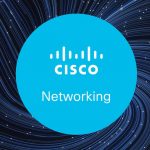“Art and science have their meeting point in method.”
Earl Edward George Bulwer-Lytton
Tracking IT ROI has always been equal parts art and science, but lately it’s becoming even more complicated as organizations deal with technology transitions such as cloud and mobility. How do we know? Because Cisco recently asked hundreds of IT Managers in companies of all sizes how their businesses track ROI.
More specifically, we asked Network Managers, Data Center Managers, Server and Storage Managers, and other IT professionals how and if ROI was tracked for their groups. Answers varied widely, as you’d expect, but several point did become clear:
- IT is becoming more strategic as a differentiator in all types of organizations, with more projects funded by Line of Business groups, which typically require stronger ROI justification, particularly in larger organizations
- ROI calculations are “muddied” by new solutions that cross traditional department or functional group boundaries – e.g. cloud and mobility
- Organizations use a broad array of ROI methods. For example, many mid-sized Network Managers mentioned IT budgeting based on the average cost of each employee on an annual basis, while larger organizations generally review ROI on a project or group basis
Whatever your ROI method, with IT budgets flattening and a larger percentage of technology spend occurring outside of traditional IT groups, there’s more pressure than ever before to deliver projects on time and on budget. So how can we help Network Managers deal with these challenges?

Robust mobility and BYOD applications involve many different network components – wired, wireless, security, and management, so we’ve wrapped all of these services together into Unified Access. By converging wired and wireless into a switch such as the Catalyst 3850, you get 10 times more scale and seven times more performance than previous architectures. By converging policies for all your wired and wireless devices into one place with Identity Services Engine, you can improve worker productivity with consistent, secure, dependable access anywhere, and increase IT staff productivity by automating many labor-intensive tasks. Integrating all these capabilities into a single pane of glass with Cisco Prime also make it much easier to scale, service and troubleshoot all these applications with a lean IT staff.
Delivering new cloud services on time and on budget can be equally challenging, particularly when you’re using “chatty” or high bandwidth applications such as VDI, a large number of sites, or disparate DC and WAN solutions that aren’t integrated. For example, did you know you can optimize Citrix XenDesktop and XenApp ICA tunnels over the WAN and avoid costly bandwidth upgrades? Or perhaps you want to reduce costs by building a hybrid cloud? In this case you can extend the WAN to off-premise clouds with the Cloud Services Router 1000V, which is essentially a virtualized router that runs on Cisco UCS in the Data Center.
In both of these cases it’s easy to see how innovative solutions developed from a customer-centric approach can directly help Network Managers improve ROI and reduce overall operational costs. May 7-9 at Interop Las Vegas and June 23-27 at Cisco Live Orlando, we’ll be sharing these solutions in our NOC, as well as others that align to specific Network, Data Center, and Security Manager priorities, so come visit us at the Cisco booth.
If you can’t make it to Interop, you can learn more about these solutions by attending our webinars, or see them on TechWise TV.


CONNECT WITH US